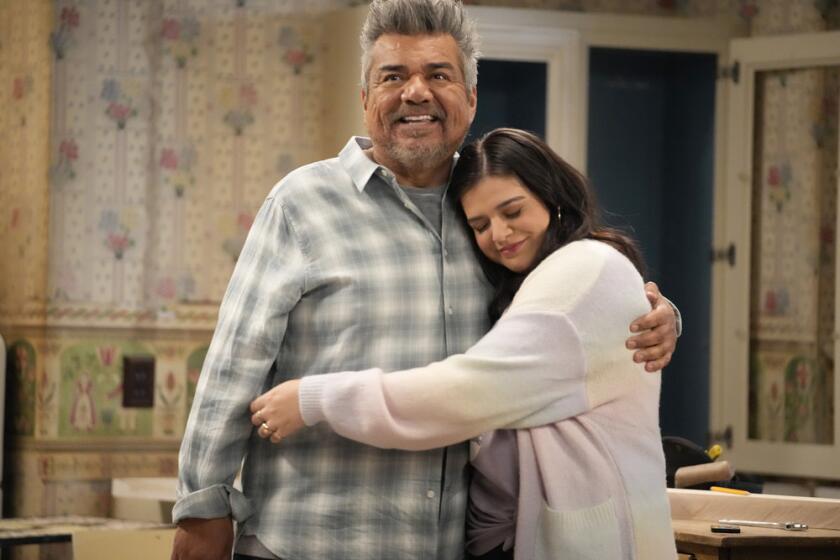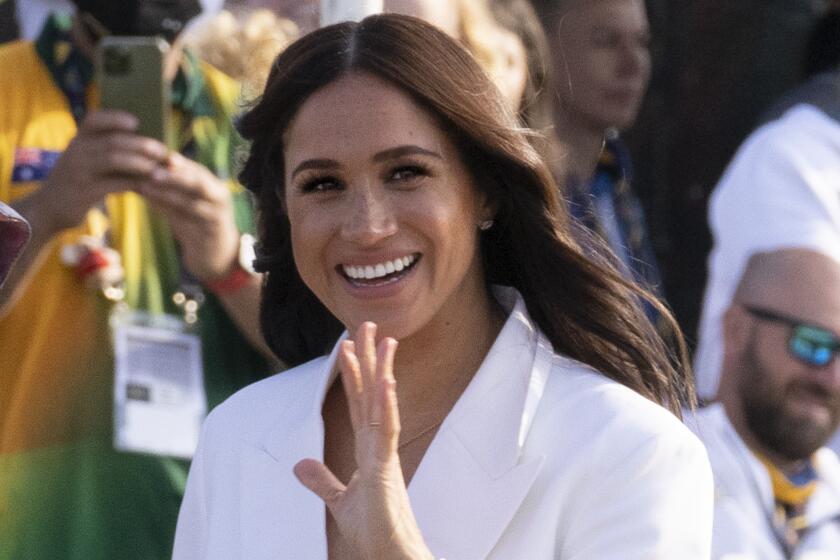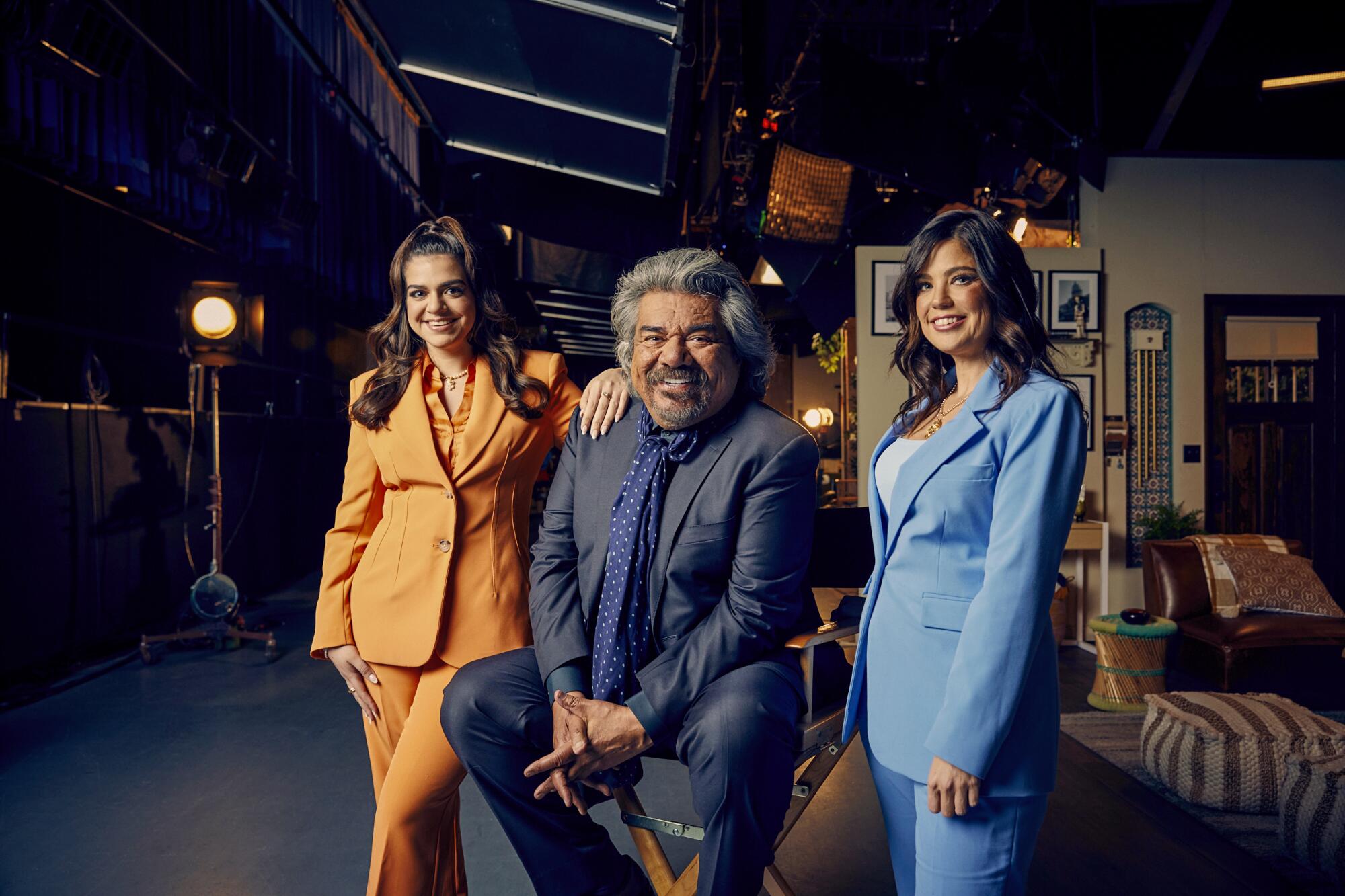
- Share via
Debby Wolfe hadn’t exactly planned to find the inspiration for a family sitcom while doom-scrolling TikTok. But in the wee hours one night, during the early stages of the COVID-19 pandemic, another compulsive swipe up on her phone screen led to a video from Mayan Lopez, the daughter of comedian George Lopez. The younger Lopez — also a comedian who, for years, had been estranged from her father — was clearing up some rumors about her parents divorce ... while twerking upside down.
“Mayan had inherited her father’s comedy chops — she knew what was funny about her struggles and her pain and was able to poke fun at it,” Wolfe says. Sure, OK. But if this was a scene from a mockumentary sitcom, the camera would zoom in on George, who is sitting next to Mayan and Wolfe, and is shaking his head like a proud but defeated father being reminded of his daughter’s rump shaking.
This isn’t a Danny and D.J. Tanner-type family dynamic. But perhaps the father-daughter dysfunction in “Lopez vs. Lopez” may be more relatable and just as heartwarming and soothing.
Created by Wolfe and the Lopez duo, the meta family comedy stars George and Mayan as fictional versions of themselves as they attempt to mend their fractured relationship. Their characters share their names, but not occupations: Mayan works at a veterinarian’s office and George has a moving company, but it goes bankrupt, prompting George to move in with Mayan. It resembles what happened to their family in real life: When the pandemic hit, Mayan and her mother Ann, George’s ex-wife who was also an executive producer on “George Lopez,” were worried about him — he is immunocompromised — so they came together during stay-at-home orders. And the healing began.
‘Lopez vs. Lopez,’ a network comedy with a mostly Latino cast, remains a rarity on TV — even if many of its most familiar genre tropes do not.
The arguments and growing pains continue when the working-class family comedy returns for its 10-episode sophomore run Tuesday on NBC, airing back-to-back episodes beginning at 8 p.m. ET/PT.
From the show’s set on NBC’s famed Universal Studios lot, Wolfe joined George and Mayan to talk about being the only Latino-centered series on broadcast television right now, how George’s relationship with alcohol is explored in the new season, and navigating boundaries when art imitates life. This conversation has been edited for clarity and length.
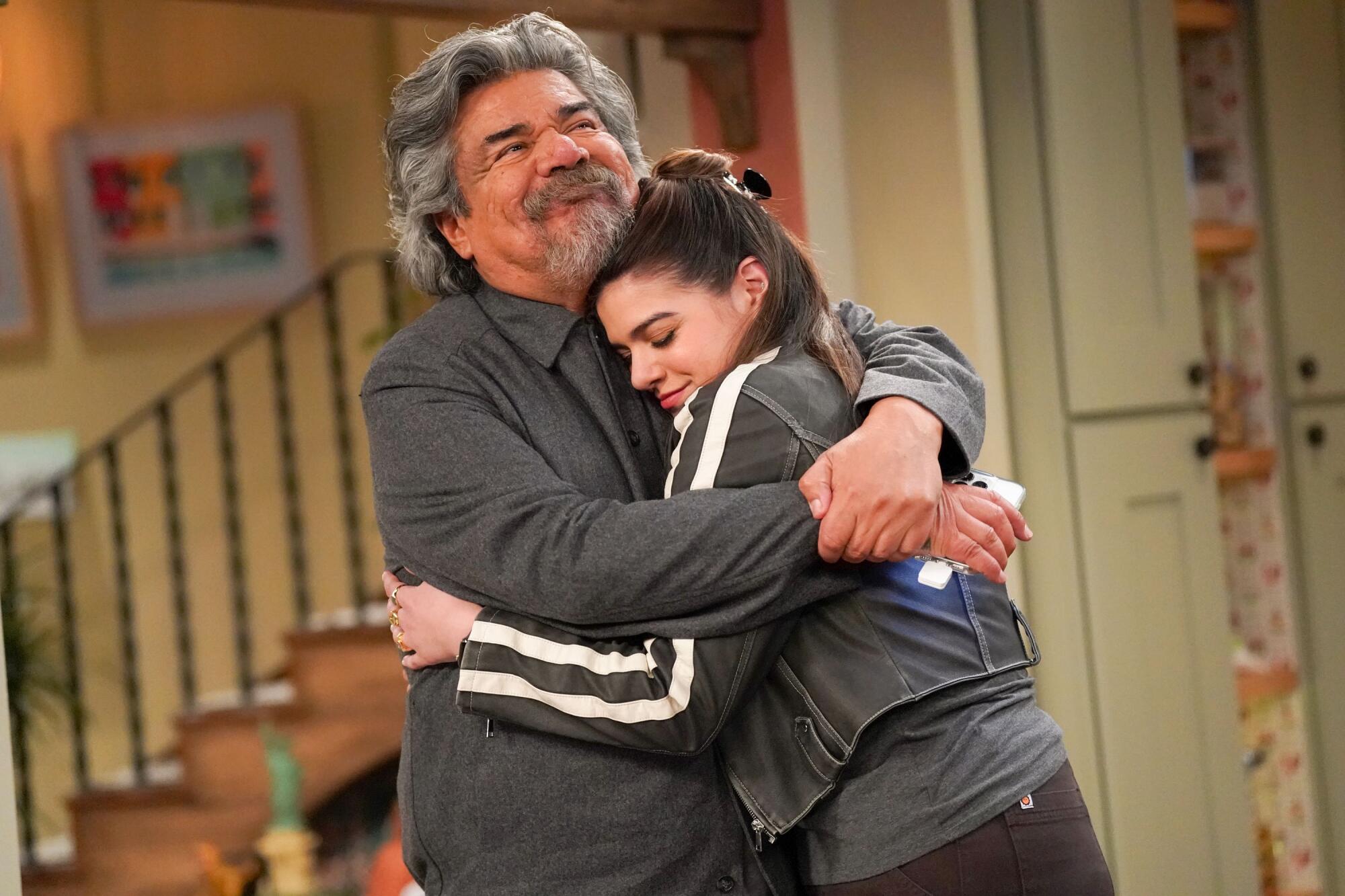
In Latino culture, you don’t usually air dirty laundry about the family out in public. Mayan, what compelled you to do it?
Mayan: I’ve been in therapy since I was very, very young. I like to think of comedy as tragedy and time. And just enough time has passed. During the pandemic, it was such a horrible time for everyone and everyone just wanted to connect. We weren’t speaking very much at that time, but I was talking about my issues with my family and mental health and what having a father that wasn’t really present [was like], how that affected my identity and how I integrated that into my comedy, and also the reconciliation. I think what helped sell the show was the numbers behind some of the videos and their success. My dad is immunocompromised; my mom donated a kidney to my dad 17 years ago. During that time where people were going apart, we came together. I did a whole series of “Why do my divorced parents still act like they’re married?” The first one got 60 million views. Culturally, yeah, we don’t air that stuff out. But that’s part of some of the issues with our community is that the generational trauma and the machismo isn’t addressed. I see “Lopez vs. Lopez” as a show for everyone, but also a love letter to our community.
George, as somebody who has mined your own life for your comedy, could you understand why Mayan would do the same?
George: I understand completely. Talking about my life wasn’t going to be my process. In the early ‘90s, before Tim Allen got “Home Improvement,” he had a special on Showtime. I saw him right before he was going to do the pilot; he did like an hour and 15 minutes — it was brilliant. All that was in the show was in his act. I remember standing in the back room thinking, “Man, I don’t think I have anything like that.” Over the next 10 years, Dave Becky [a comedian manager] told me at Carolines in the early ‘90s: “Your act doesn’t really tell me anything about yourself.” I was trying to just be a comedian. Once I started to talk about my grandmother, Vicks, hot dog with a piece of sandwich bread wrapped around it — I mean all those kinds of jokes are what you see in memes now.
Was it a tough sell for you, the idea of doing a show with your daughter?
George: I thought it was animation.
Debby: You did? For real?
Mayan: He called me and was like, “Is this going to be an animated ‘Gilmore Girls’?” Because he was like, “There’s no way that they’re going to allow a real father and daughter to talk like that to each other.”
George: When you’re orange, you can say anything.
Mayan: That was something that was very interesting, because there’s no rule book; there’s nothing that could prepare me to have a scene partner who’s not only my father, but someone that’s caused me pain, and I’m playing a version of myself. It’s personal and it’s about finding the right amount of separation to try to protect yourself, but also play the character to the best of their ability. We’ve both been very brave with this and I think that’s also the comedic and the performer aspect that I’ve learned from him and seen growing up by seeing how he’s gone into his art. My dad will take the script, and he’ll rewrite it and it’s more personal to our real-life experience and some things that come out in that script I’ve never heard from him.
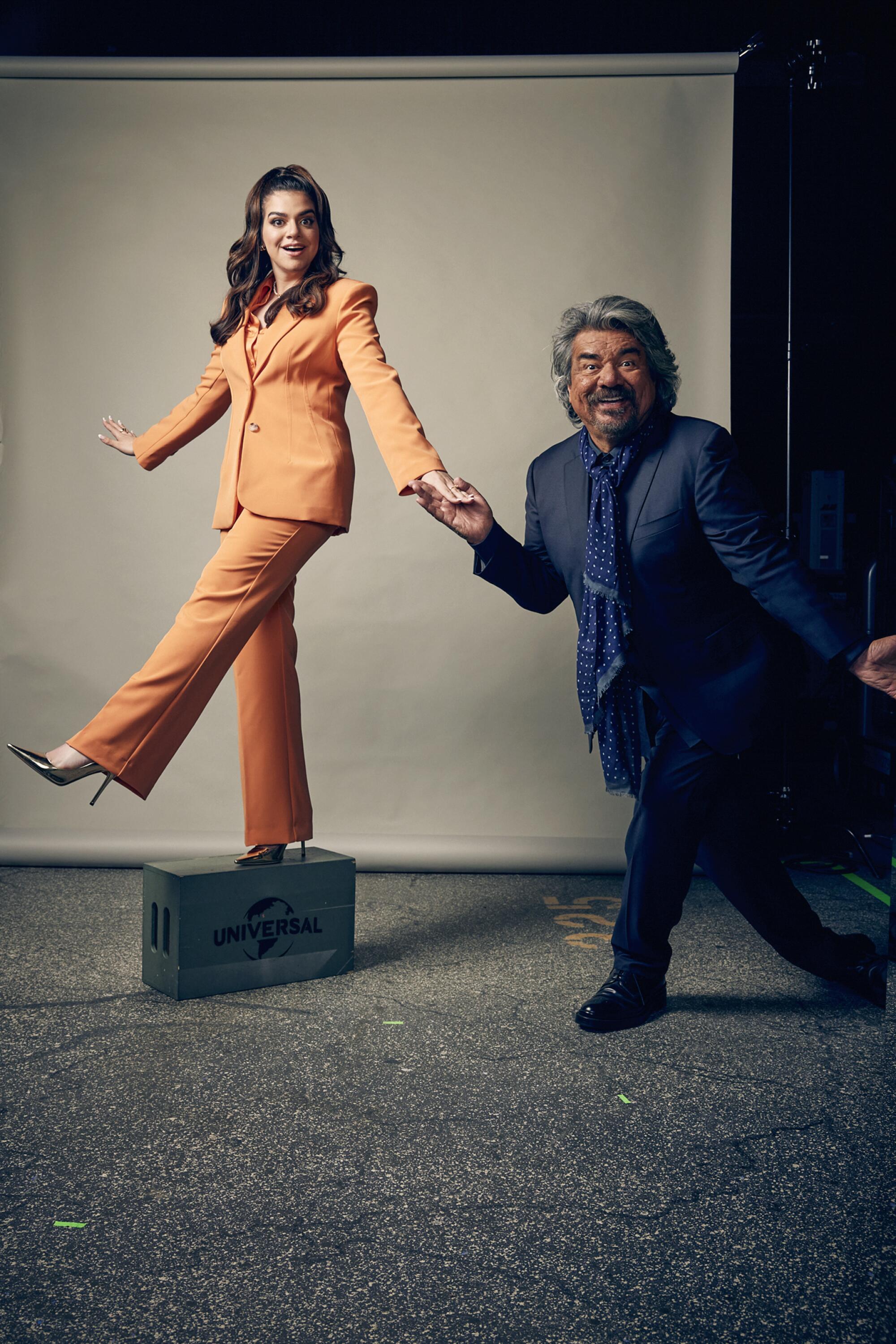
Debby: Mayan saying how, in the show, they say things to each other that they haven’t said to one another in real life — I think it’s very powerful. I think it’s been healing not only to them, personally, but also healing for the audience.
If this started with the TikTok videos of you, Mayan, trying to heal and process everything, what has it been like for you, George, doing this show with her? How has it been healing for you?
George: I take responsibility, but also, I had a very difficult upbringing without a mother, without my father. In order to save yourself, you have to put a wall around your emotions — good and bad because I just don’t even know what would happen if I didn’t. I didn’t react to many things, good or bad. I remember, when I was 7 years old, I signed up for Little League late and all the boys were picked. I went to the guy from the league, and he said, “If I can find a team that needs somebody, I’ll call you.” So he called me: “I found a team for you. Aren’t you excited? Let me hear you scream.” And I didn’t know how to be excited. I was like, “OK.” I couldn’t. I was 7. But I understand it now.
Debby: George really surprised me with how sensitive he is. Just talking with you about your relationship with Mayan and everything, I’ve seen you in tears.
George: When we did, I think it was maybe a Christmas show, and I said to Selenis [Leyva, who plays George’s ex-wife, Rosie on the series], “I’m gonna say one line toward the end.” I didn’t tell her what it was. But it was about me drinking. I said to her [Selenis]: “You know, I’m not bad...” I’m not bad. I’ve never seen a real, connected family in my family.
Mayan: As me, and my character, I have been able to see my dad as a person. Even through therapy, yes, I see that he’s had this childhood and these things that have affected and changed who he is, and that’s helped us and now we get to enjoy one another and, with this show, we’re making up for lost time.
George: If Mayan and Debby were men, this show would not be what it is. The success of this show is that it was created by women who are emotional and vulnerable and know how to make you feel this connection with issues around family that everybody goes through. It’s nothing unusual.
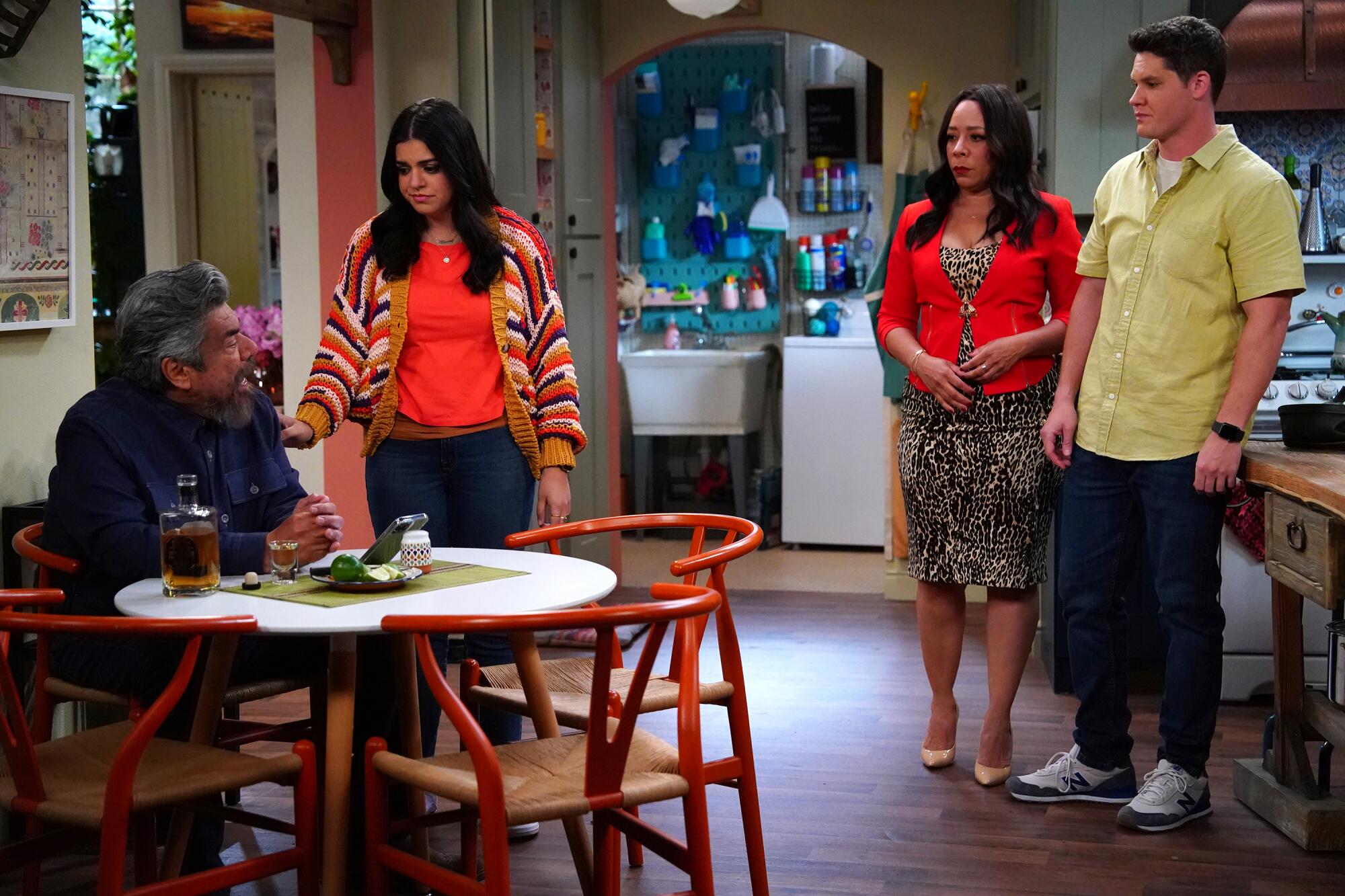
Debby, what do you remember about those early conversations with the two of them and deciding how to set this foundation for what the tone would be?
Debby: I actually talked to them separately. I wanted to get both sides of the story. They both had just such different perspectives. It’s generational. He had these old-school ideas and Mayan is modern, Gen Z-like. She’s very therapized and George is ... he’s kind of therapized.
Mayan: He’s gotten better.
George: Hey, I don’t hardly see you outside of here, so, I would say I’m much better.
Debby: They’re still healing. They’re still growing. It makes sense to me to that Mayan grew up on the set of the original “George Lopez” show, so it seems to make sense that they would heal on the set of a sitcom. It’s full circle.
Mayan, ahead of the first season, I asked if you and your father decided to make a pact that laid out some guidelines about working together. You said that you hadn’t. George, looking back, do you think that was the right way to go? Do you wish you had laid out some terms?
George: No, I know where the line is. But I remember, last year, we had a scene in the kitchen and Mayan says something like, “Yeah, go ahead, for your daughter, the only one you have that we know of.” Then I said, in rehearsal, “Is this real life? Or is this in the TV show?” You could see her physical change. And I knew. But I’m very respectful of Mayan and how I speak to her and I leave her alone, I let her work, I don’t go to her room or practice with her. I don’t require that we say goodbye to each other at the end of the day if we’re occupied with other things. We just leave. Professionally, that’s the best way for it to work.
Is there anything that surprised you Mayan about the process of working with your father?
Mayan: Being raised by a stand-up [comedian] is a very unique upbringing, and you develop a thick skin pretty quickly. I think sometimes that could be pierced because of the material. But growing up, sometimes we would communicate through jokes. I think that translated to “Lopez vs. Lopez” because we’re still bouncing off each other the way we’d always done through life. My poor mom — sometimes my dad and I would just rag on her and just have these bits, but we would make each other laugh all the time of just going back and forth. That wasn’t foreign.
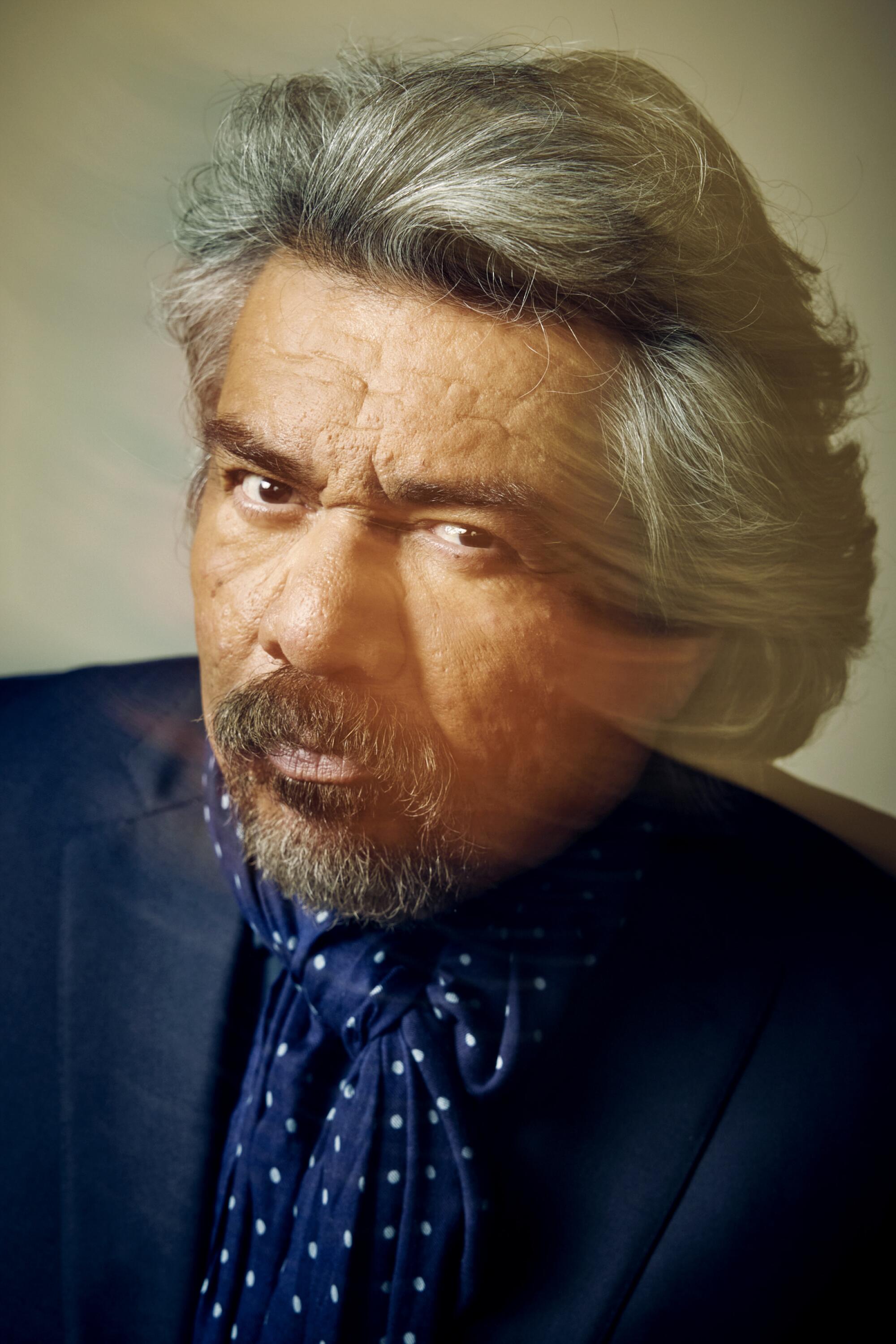
When you really sit and think about her and what you wish you could tell her, is it hard not to be emotional? Is it easier to connect with her by riffing off one another?
George: I think so. When I look at her when we’re doing rehearsals and stuff, I see her as a 5-year-old girl, 7, 9. I can see her and [hear] things that she would have said to me as a kid in the car seat and all that stuff and still see her in this frame, but I look at her and see different Mayans through all of her life.
Debby, you’re in a unique position in that the stars of your show are living the life that is on the screen. When you’re around them, is it hard not to take notes as they’re interacting?
Debby: I’m taking notes all the time. Sometimes they will get into it, and it can be awkward and Mayan will be like, “Write it down, Debby!” I’m just so blessed that they’re so open. I can’t imagine making a show with my father. Their dynamic feels very familiar to me, the laughter and the dysfunction. It’s something that I experienced in my own life; my mom’s an immigrant from El Salvador [and] my dad’s a Jew from Miami. I grew up with this family with completely different points of view.
This season, things get meta when your characters begin working together. Why did you want to explore that and how much are you pulling from real life in the issues that arise?
Debby: What we learned in the first season is the show really does live at home with the family. The vet [office] felt like a separate island. That’s why we made that decision to have Mayan lose her job at the vet’s office and work with George. We have a wealth of inspiration from the fact that they do work together to explore [and ask] what are those boundaries?
Mayan: The specific storyline, with Mayan and George through the first season, it was them really repairing [their relationship], and they’re still repairing, but you get to see the fruits of that labor in the storyline this season. I think that’s what we’re doing. I actually got to teach Mayan [the character] something. But it’s nice to see Mayan and George are looking out for each other and also Mayan being very protective of her dad’s sobriety, and caring for him and wanting him to be happy.
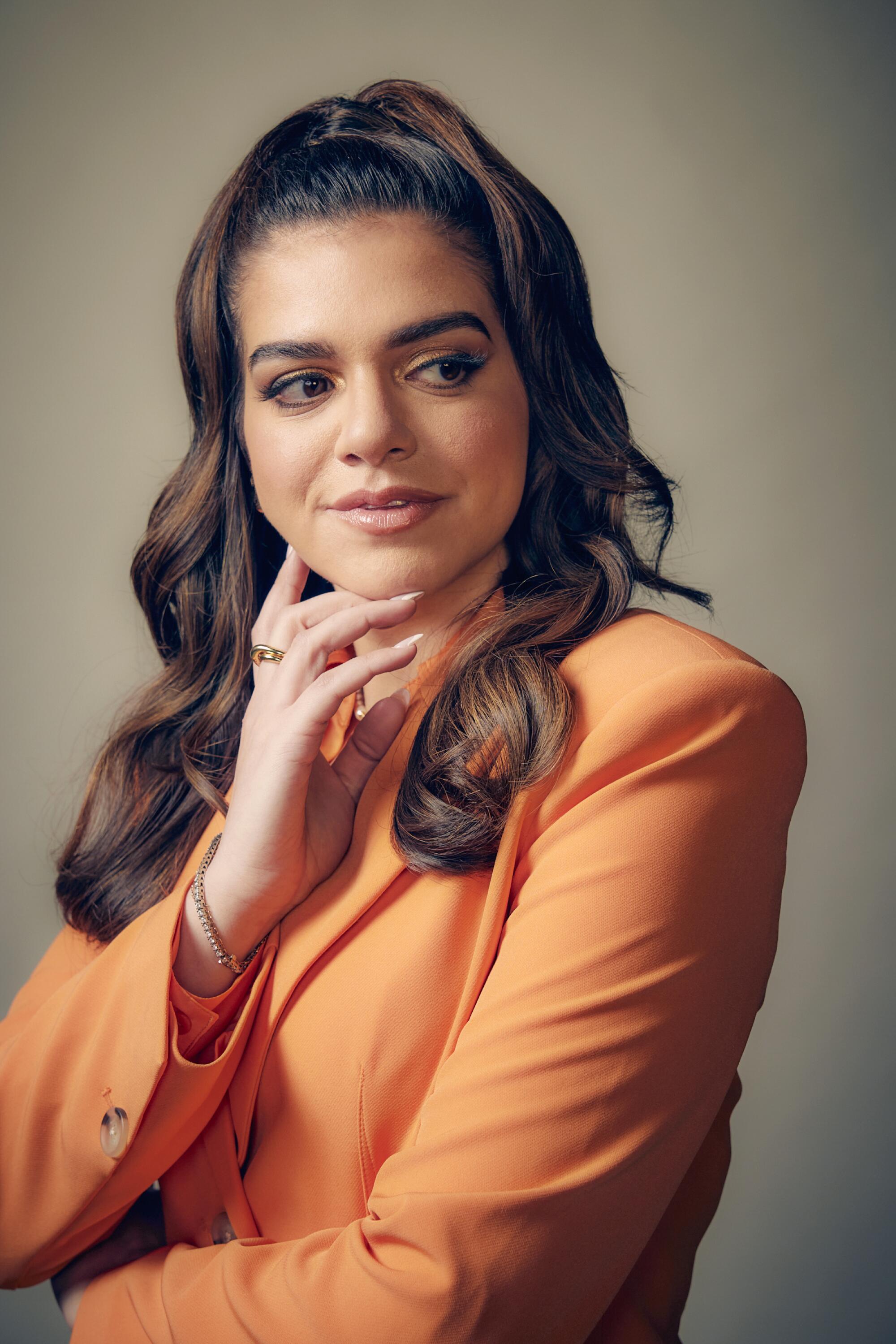
George, you’ve been open about your relationship with alcohol. How did you feel about your character battling alcoholism in the show? Season 2 opens with your character being five weeks sober and still adjusting to it.
George: I think that it is a definite good thing to talk about because it has been a thing that’s been present in my life for a long, long time — even though I don’t drink as much as I did. Practically hardly anything. As difficult as I thought it would be [to have it in the show], I’ve actually enjoyed it. I’m an open book.
Debby: With the sobriety storyline — again, I’m growing and healing with this show. I started to confront my own issues with alcohol and overdoing it. I went for a long bout of sobriety last year, and our first episode back, when George is served a drink [at a restaurant] after five weeks sober, that actually happened to me. [In the scene, George orders a mocktail, but is served a drink with alcohol.] I had a breakdown because I was going through all the emotions of confronting how alcohol has been a bad presence in my life. But having George [the character] going through it, and getting sober, I really hope that inspires a lot of people, especially in our community, to confront it. We don’t talk about it.
The series is returning after the Hollywood strikes. The industry has also been in the midst of contraction, and some of the casualties have been Latino-centered shows.
Debby: If I thought about the tremendous amount of pressure it is to be “one of the only” or “the only,” it would cause me way too much anxiety. I can’t control whether or not this show survives; all I can control is making the best show possible and putting all my energy and love into it and hope that it resonates with an audience, which it has been doing. We have this opportunity now and I’m focused on that: I’m training all the writers in the room to be showrunners. I take them with me through every step of the process, so that they can go out and pitch their Latino shows. We just need to get more. When we have the opportunity, it’s important that we train the future.
George: Look at how hard it is to have any show succeed; it’s hard for everybody. But we [Latinos] get few opportunities. You see what [executives] prefer to use rather than looking like the world. You look at our show and it looks like what the world looks like. That’s because of us. But also I know, because I’ve been in those rooms, they’re not going to take a chance on a Latino lead. I remember Bob Iger said to me — he asked me to go to some meeting at ABC; this dog and pony show — and he says, “George, how do we sell Hondas to Latinos?” I said, “You sell Hondas to everybody.” What do you want me to tell you? Make it La Honda?
This is how you change things. You don’t change things with “I’m not going to buy that.” That doesn’t work for us. You change it by creating, by not having an ax to grind. I don’t have an ax to grind anymore.
Debby: Culturally, we’re told a lot, “You can’t. You’re not good enough.” We have to change our mind-set. We can. We manifest it.
More to Read
The complete guide to home viewing
Get Screen Gab for everything about the TV shows and streaming movies everyone’s talking about.
You may occasionally receive promotional content from the Los Angeles Times.
